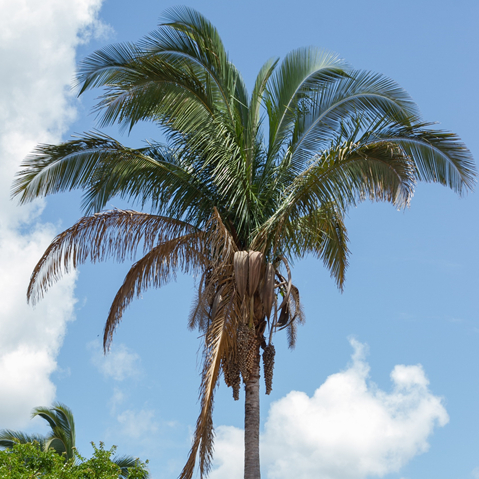
Background
People use babassu for conditions such as cancer, infections of the kidney, bladder, or urethra (urinary tract infections or UTIs), wounds, and many others, but there is no good scientific evidence to support these uses.
Safety Safety definitions
When applied to the skin: There isn't enough reliable information to know if babassu is safe or what the side effects might be.
Special Precautions & Warnings:
Pregnancy and breast-feeding: There isn't enough reliable information to know if babassu is safe to use when pregnant or breast-feeding. Stay on the safe side and avoid use.Bleeding disorders: Babassu might slow blood clotting. In theory, babassu might increase the risk of bruising or bleeding in some people with bleeding disorders.
Surgery: Babassu might slow blood clotting. There is a concern that it might cause extra bleeding during and after surgery. Stop taking babassu at least 2 weeks before surgery.
Thyroid problems such as hypothyroidism (too little thyroid hormone) or goiter: Babassu might decrease thyroid function. This might make certain conditions, such as hypothyroidism or goiter, worse.
Effectiveness
- Cancer.
- Constipation.
- Swelling (inflammation) of the stomach (gastritis).
- Obesity.
- Pain.
- Rheumatoid arthritis (RA).
- Infections of the kidney, bladder, or urethra (urinary tract infections or UTIs).
- Poor circulation that can lead to varicose veins and other conditions (venous insufficiency).
- Wound healing.
- Other conditions.
Dosing & administration
Interactions with pharmaceuticals
Medications for an overactive thyroid (Antithyroid drugs)
Interaction Rating=Moderate Be cautious with this combination.
Babassu might decrease thyroid function. Taking babassu along with medications for an overactive thyroid might decrease thyroid function too much. Don't take babassu if you are taking medications for an overactive thyroid.
Some of these medications include methimazole (Tapazole), potassium iodide (Thyro-Block), and others.
Medications that slow blood clotting (Anticoagulant / Antiplatelet drugs)
Interaction Rating=Moderate Be cautious with this combination.
Babassu might slow blood clotting. Taking babassu along with medications that also slow blood clotting might increase the chances of bruising and bleeding.
Some medications that slow blood clotting include aspirin, clopidogrel (Plavix), diclofenac (Voltaren, Cataflam, others), ibuprofen (Advil, Motrin, others), naproxen (Anaprox, Naprosyn, others), dalteparin (Fragmin), enoxaparin (Lovenox), heparin, warfarin (Coumadin), and others.




